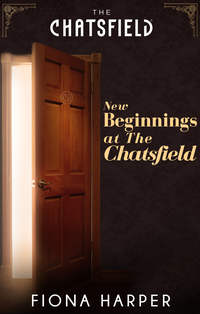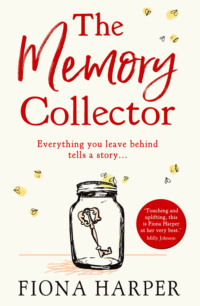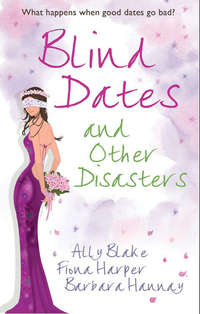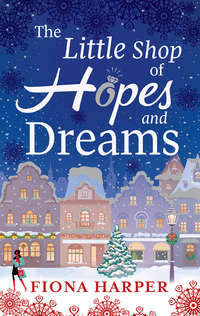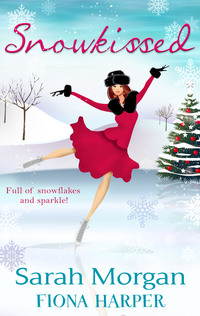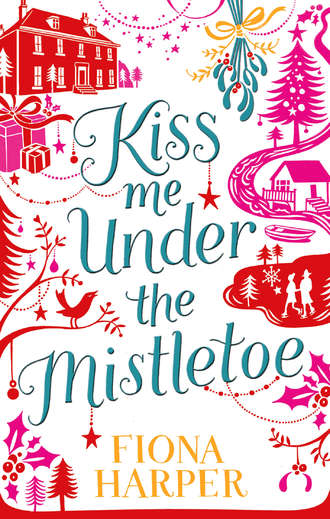
Полная версия
Kiss Me Under the Mistletoe
He turned and walked out of the boathouse and down the stairs to the jetty with even steps. She didn’t need him. She’d made that abundantly clear. But, as he climbed back into the dinghy, he couldn’t help feeling that part of his promise was still unfulfilled.
This time there were no interruptions as he untied the rope and started the motor. He turned the small boat round and set off in the direction of Lower Hadwell, a few minutes’ journey upstream and across the river.
When he passed the Anchor Stone that rose, proud and unmoving, out of the murky green waters, he risked a look back. She was still standing there on the balcony, her hands wide and her chin tilted up, refusing to acknowledge his existence.

CHAPTER FOUR
21st May, 1952
We started filming almost a week ago now, but today was my co-star’s first day on set. Sam Harman might be a very talented director, but he has some very strange methods. Very strange. Up until now he has insisted that Dominic and I rehearse separately. Ridiculous. I mean, instead of building the rapport I should have had with my leading man—in a love story, for goodness’ sake—I’ve been getting acquainted with an assistant producer who reads the lines off a crumpled script like a robot.
The plot’s a simple one, I suppose. Dashing son of the wealthy family falls for the gardener’s daughter, and she for him, but the snobbery of both families conspires to keep them apart. I’m sure there are a thousand stories like it on library shelves. But what makes this one different is the characters, the chemistry. In the script, it just leaps off the page, and I didn’t understand why Sam had stopped Dominic and me meeting until we shot our very first scene together—coincidentally, Charity and Richard’s first meeting too. (She’s come back from university, aged 22, having always been in love with him, and he suddenly sees her with new eyes.)
I wish I could write in an American accent, because I’d so love to reproduce Sam’s blunt instructions accurately. I can’t remember his exact words, but I do remember that he told us the scene had to pulse with unspoken longing, with electricity.
If I’d had more time to think, I probably would have panicked awfully. That was just what I’d been afraid of, having read the script—that I wouldn’t be able to do that ‘instant connection’ thing Sam has been drumming into me since we started rehearsals. I tried to explain this, why it had been such a bad idea keeping Dominic and me apart, but he just kept talking about it being important, about only getting one chance to capture that sweet awkwardness of a first meeting.
To be honest, I thought he was barking up the wrong tree completely. Or maybe just barking mad. Still, he’s the director and I’m no diva. I need to work. I have to work. It keeps me sane.
So we all tramped down to the darling boathouse at the bottom of the hill and I went out onto the balcony overlooking the river. (Richard finds Charity there. She isn’t supposed to be there really, but she goes to the boathouse to think, to breathe. It’s her sanctuary.) I suppose Sam is quite clever as a director. He likes his actors being ‘real’, he says.
Anyway, I didn’t enjoy it much at the time, because he left me standing there, facing away from the door, hands wide on the balcony railing for what felt like an age. By the time Dominic (as Richard) actually did arrive, I’d been waiting so long, all worked up, that I actually did jump when the door crashed open. Didn’t have to act that reaction one bit.
And then I turned round and saw him.
‘Breathless,’ Sam had said to me. ‘That’s all I want from you, Laura. Breathless.’
And breathless I was.
I’d seen him before, of course, on a cinema screen like everyone else. I knew he was good-looking, with that sandy thick hair and those startling blue eyes. I always thought it was something about the colouring process that made them look that way, but they really are that blue. And he came striding across the room to confront me … I mean, Charity … and I found I literally had to suck the oxygen into my lungs. I seemed to have forgotten how to do it automatically.
What was worse was that at first I could tell he was just in character, ready to put a flea in the ear of someone he thought was a trespasser, but the then he reached the door to the balcony and he just … stopped. Stopped dead. I couldn’t tell if he was still acting at first, or if he’d forgotten his lines. I’d certainly forgotten mine.
And then I realised that he felt it too—the thing I’d hardly realised I’d been feeling myself. It was the strangest thing …
I knew I wasn’t Charity any more, and he wasn’t Richard. I was me and he was Dominic, and yet something just … fell into place. Instant connection. The only words I have to describe it are Sam’s. How ironic. And it still seems like a poor reflection of what it felt like.
I knew.
Knew I loved him. Right from that moment.
So now I’m not just a sentimental, romantic fool; I’m obviously ready for the nuthouse too. And possibly the divorce courts.
I also knew that he was married, as I am. But, unlike me, he loves his wife. He’s one of the few film actors who has a good reputation in that department. Another man might act on whatever weird ‘electricity’ of Sam’s passed between us, but I know Dominic won’t. Even if he felt what I felt.
But now, alone in my hotel room away from Whitehaven, the more I recall the moment, the more I think I was maybe kidding myself. He’s an actor, after all. A very good one. Much better than me.
He’s probably not worrying about the upcoming scenes, the ones when he’ll have to take me in his arms and kiss me. But I can hardly sleep for thinking about it. I haven’t resorted to marking the calendar with big red crosses yet, but I’m close.
I can’t wait. But I also know it’ll be just a few, snatched moments of perfection and then they’ll never come again. Which would be worse: to kiss or not to kiss?
And it might mean nothing at all to him. Like shaking hands with a stranger …
And, even if it did, it can only mean something for two glorious months, and then only when the cameras are rolling and Sam is barking his orders at us. Maybe that would be worse.
Come to think of it, Sam was very quiet today. The last couple of days, when I’ve been shooting scenes involving Charity and her parents, he’s been interrupting all the time, making us do things over and over again. But today I hardly heard a squeak out of him. He watched Dominic and me play the scene, his arms folded, and when Dominic had left and I was just staring at the open door, finally able to heave in a breath, Sam just said, very quietly, ‘Cut’.
One take, that was all, and then he packed up and said he was done for the day. Most unusual.

CHAPTER FIVE
Louise had been staring so long at the field of sheep on the other side of the river that the little white dots had blurred and melted together. She refused to unlock her gaze until the dark smudge on the river in her peripheral vision motored out of sight.
Eventually, when it didn’t seem like defeat, she sighed and turned to rest her bottom on the railing of the balcony and stared back into the boathouse.
He couldn’t have known who he’d looked like standing there below her on the steps as he offered her the long, black key. It had been one of her favourite scenes in A Summer Affair—when Richard came to meet Charity secretly in the boathouse. Not that anything really happened between them. It was the undercurrents, the unspoken passion that had made it one of the most romantic scenes in any film she’d ever seen.
The trespasser had looked at her with his warm brown eyes and, somehow, had offered her more than a key as he stood there. For the first time in years, she’d blushed, then hurried to hide the evidence with her hair.
And then he’d had to go and spoil that delicious feeling—the feeling that, maybe, not all men were utter rats—by reminding her of who she was.
Louise stood up, brushed the dirt off of her bottom and walked back into the little sitting room. Of course, she wasn’t interested in getting involved with anyone just now—despite what Tara said about the therapeutic nature of a hot and heavy fling—so she didn’t know why she’d got so upset with the gardener. Slowly, she closed and fastened the balcony doors, then exited the boathouse, locking the door and returning the key to its hiding place.
The light was starting to fade and she hurried back up the steep hill, careful to retrace her steps and not get lost, mulling things over as she went. No, it wasn’t that she was developing a fancy for slightly scruffy men in waxy overcoats; it was just that, for a moment, she’d believed there was a possibility of something more in her future. Something she’d always yearned for, and now believed was only real between the covers of a novel or in the darkness of a cinema.
She shook her hair out of her face to shoo away the sense of disappointment. The gardener had done her a favour. He’d reminded her that her life wasn’t a fairy tale.
She snorted out loud at the very thought, scaring a small bird out of a bush. She was probably just feeling emotional because she wouldn’t see Jack for two weeks. Toby had kicked up a stink, but had finally agreed that, once she was settled at Whitehaven, their son could live with her and go to the local school. She and Jack would be together again at last.
Toby had been difficult every step of the way about the divorce. Surprising that he would lavish so much time and energy on her, really. If he’d paid her that much attention in the last five years, they might not be in the mess they were in at present. But that was Toby all over.
She pulled her coat tighter around her as she reached the clearing just in front of the house. The river seemed grey and troubled at the foot of the hill and dark, woolly clouds were lying in ambush to the west. She ignored the dark speck travelling upstream, even though the noise of an outboard motor hummed on the fringes of her consciousness.
Not one stick of furniture occupied the pale, grand entrance hall to Whitehaven, but, as Louise crossed the threshold, she smiled. Only two rooms on the ground floor, two bedrooms and one bathroom had been in a liveable state when she’d bought the house. All they needed was a lick of paint and a good scrub so she could move into them. The furniture would arrive on Wednesday but, until then, she had a blow-up mattress and a sleeping bag in the bedroom, a squashy velvet sofa she’d found in a local junk shop for the living room, and a couple of suitcases to keep her going.
She’d let Toby keep all the furniture, disappointing him completely. He’d been itching for a fight about something, but she just wasn’t going to give him the satisfaction. Let him be the one waiting for an emotional response of some kind for a change. She didn’t want his furniture, anyway. Nothing that was a link to her old life. Nothing but Jack.
None of that ultra-modern, minimalist designer stuff would fit here, anyway. She smiled again. She fitted here. Whitehaven wasn’t the first property she’d owned, but it was the first place she’d felt comfortable in since she’d left the shabby maisonette she’d shared with her father and siblings. She knew—just as surely as the first time she’d slid her foot into an exquisitely crafted designer shoe—that this was a perfect fit. She and this house understood each other.
The kitchen clock said it was twenty past eight. Ben sat at the old oak table, a lukewarm cup of instant coffee between his palms, and attempted to concentrate on the sports section of the paper instead of the second hand of the clock.
Megan had never been like this when they’d been married. Yes, she’d been a little self-absorbed at times, but she’d never shown this flagrant disregard for other people’s schedules, or boundaries, or … feelings. He wasn’t sure he liked the version of Megan that she’d gone in search of when she’d left him. Or this new boyfriend of hers that he wasn’t supposed to know about.
Twenty minutes later, just as his fingers were really itching to pick up the phone and yell at someone, he heard a car door slam. Jas bounced in through the back door and, before he could ask if her mother was going to make an appearance—and an apology—tyres squealed in the lane and an engine revved then faded.
‘Nice dinner?’ he asked, flicking a page of the paper over and trying not to think about the gallon of beef casserole still sitting in the oven, slowly going cold. Eating a portion on his own hadn’t had the comfort factor that casserole, by rights, ought to have.
Jas shrugged her shoulders as he looked up.
‘Just dinner, you know …’ she said. And, since she was eleven-going-on-seventeen, he supposed that was as verbose as she was going to get.
‘Have you done your homework?’
‘Mostly.’
This was quality conversation, this was. But he was better off sticking to neutral subjects while he was feeling like this. In the last couple of years as a single dad, he’d learned that transitions—picking-up and dropping-off times—were difficult, and it was his job to smooth the ripples, create stability. Being steady, normal, was what was required.
‘Define mostly,’ he said, smoothing the paper closed and standing up.
Jas dropped the envelope assorted junk she was clutching to her chest onto the table and threw her coat over the back of a chair. ‘Two more maths questions, and before you say anything …’
Ben closed his mouth.
‘… it doesn’t have to be in until Thursday. Can I just do it tomorrow? Please, Dad?’
She stared at him with those big brown eyes and blinked, just once. She looked so cute with her wavy blonde hair not quite sitting right in its shoulder-length style. His memory rewound a handful of years and he could hear her begging for just one more push on the swing.
‘Okay. Tomorrow it is.’
‘Thanks, Dad.’ Jas skirted the table and gave him a hug by just throwing her arms around him and squeezing, then she lifted a brightly coloured magazine out of the pile of junk on the table. ‘Recreational reading,’ she said, brandishing it and attempting to escape before he could inspect it more closely.
He wasn’t so old that his reflexes had gone into retirement. The magazine was out of her fingers and in front of his face before she’d fully disentangled herself from the hug.
‘What’s this trash?’
Jas made a feeble attempt at snatching it back. ‘It was Mum’s. She’d finished it and she said I could have it.’
Ben frowned. Buzz magazine. He’d never read it himself, but he knew enough from the bright slogans on the cover that it was the lowest form of celebrity gossip rag. The lead story seemed to be ‘Celebrity Cellulite’. Nice. What was Megan thinking of giving Jasmine a publication like this? Didn’t his ex know how impressionable young girls were at Jas’s age?
‘I don’t think this is appropriate.’
Jas rolled her eyes. ‘It’s interesting. All my friends read it.’
He raised his eyebrows. ‘All of them?’
The nod that followed couldn’t have convinced even Jas herself.
‘That’s what I thought,’ he said. ‘I mean, there’s no substance in here. It’s just rubbish …’ He flicked through the pages, hoping his daughter would see what he saw. ‘It’s the worst kind of gossip. I—’
But then he stopped leafing idly through the pages, his whole frame frozen. His mouth worked while his brain searched for an appropriate sound. He placed the magazine on the table and stood, arms braced either side of it, as he stared again at one particular grainy photograph.
‘Told you it was interesting,’ Jas said with a smirk.
‘But that’s …’
Jas turned so she was side-by-side with him and leaned against his bunched-up arm muscles, looking down at the magazine too. ‘Lulu Thornton,’ she informed him, in an astoundingly matter-of-fact voice. ‘Or Louise as she now likes to be called. Mum thinks she’s a waste of space. Most people do.’
‘Lulu who?’ he whispered hoarsely.
Jas punched him on the arm. ‘Da-ad! You’re stuck in the Stone Age! You know … She married Tobias Thornton, the actor.’
Again … who?
‘We watched him in that action movie last weekend. The one with the bomb on the private jet?’
Oh. Him.
The picture was dull and not very clear—the product of a telephoto lens the size of a space shuttle, no doubt. But there was no doubting the fierce glare in those eyes as she squared up to the paparazzo, her son clutched protectively to her, his face hidden. He’d been on the receiving end of that very same look just a few hours ago and it still gave him the shivers thinking about it.
‘And she’s famous?’ he asked Jas, trying to sound as uninvolved as he actually was, but less involved than he felt.
Jas nodded. ‘Well, famous for being married to somebody famous. That’s all.’
Married. He should shut the magazine right now and condemn it to the recycling bin. Only … she’d said she was divorced. Almost divorced. And, in the few moments that she’d let her icy guard down, he’d known she was telling the truth. The gaudy headline splashed across the top of the feature seemed to confirm his gut instinct: ‘Louise’s Private Hell Since Split!’
He took one last look at her image and felt a twinge of sympathy. Going through a divorce was bad enough, but having every spat reported for the world to see? More like public execution than private hell. No wonder she’d freaked out when she’d found some strange man in her greenhouse.
He closed the magazine and looked at Jas. ‘Sorry, Jas. I think these sorts of magazines are a gross invasion of privacy. I’d rather you didn’t read it.’
She chewed her lip and her fingers twitched. He could tell she was torn between doing the right thing and insatiable curiosity. Thankfully, when she gave him a rueful smile and a one-shouldered shrug he knew he’d been doing an okay job of counteracting all the psycho-babble her mother had been subjecting her to since their separation.
He grinned. ‘Good girl.’
Jas’s smile grew and changed. ‘Since I’ve earned a gold star, can I have fifteen pounds for a trip to the theatre with school?’
Ben looked heavenward. What was it with women and money? Any good deed seemed to need a reward—preferably in the form of shoes. Perhaps he should be glad that at least this was something educational. But the shoes would come later. Oh, he had no doubt the shoes would come later. ‘Give me a second while I find my wallet. What are you going to see, again?’
‘The Taming of the Shrew.’
Ben nodded approvingly while he searched the kitchen worktops for his battered leather wallet. He hunted through the junk drawer. Where had he put the darn thing when he’d come in this evening? ‘Jas, I’ll come and give you the cash when I’ve found my wallet, okay?’ he said slamming the drawer in an effort to get it to close in spite of the disturbed odds and ends inside.
‘Cool.’
‘And Jas …?’
She turned at the doorway to the lounge.
‘This Louise Thornton woman. Do you think she’s a waste of space?’
She looked up at the corner of the ceiling and then back at him. ‘Mum says any woman who finds her identity in a man, or puts up with the … rubbish … she did, is TSTL.’
From the way Jas paused before she’d said ‘rubbish’, Ben guessed his ex-wife’s version had been a little more earthy.
But TSTL?
‘Too stupid to live,’ Jas elaborated and scooted off to watch the TV.
The sounds of her programme floated in from the adjoining room as Ben searched for his wallet for a full ten minutes. He checked his coat, the car, the kitchen again … Just as he was racking his brains and replaying the day in his head, it struck him. He knew exactly where he’d left it. He could see it so clearly in his mind’s eye, he could almost reach out and touch it.
A rough wooden bench, long rays of the afternoon sun slanting through uneven Victorian glass. A black, soft leather square with cards and ancient till receipts poking out of it sitting next to a pot containing a rather spectacular pitcher plant.
He sat back down on a chair and frowned. His wallet had been too bulky in the back pocket of his jeans and he’d taken it out and put it on one of the shelves in the greenhouse this afternoon. And then, with all the scowling and marching back down to the boat, he’d forgotten it.
He blew out a breath. If it had been just the cards and the few notes that were in there, he might have just left it. There was no way his face was going to be welcome back at Whitehaven any time this century. But the wallet contained one of his favourite photos of Jas and him together, taken in a time when she’d had ringlets and no front teeth and when he didn’t seem to have permanent frown lines etched on his forehead.
There was nothing for it. He was going to have to go back.
Ben knocked on the door twice. Hard enough to be heard, but not hard enough to seem impatient. And then he waited. The clear, pale skies of yesterday were gone and a foggy dampness dulled every colour on the riverbank. He turned his collar up as the mist rallied and became drizzle.
He raised his fist to knock again, but was distracted by a hint of movement in his peripheral vision. He turned quickly and stared at the study window, just to the right of the porch. Everything was still.
He grimaced and shoved his hands in his pockets. At least he and Louise Thornton were both singing from the same hymn sheet. Neither of them was pleased he was here.
Knowing she was probably hovering in the hallway, he knocked again, just loud enough to make a dull noise against the glossy wooden doors.
‘Hello? I’m sorry for the intrusion—’ He’d been going to say Mrs Thornton, but it seemed odd to use her name when she hadn’t revealed it to him herself.
‘I really didn’t want to disturb you again,’ he called out as he pressed his ear to the door, trying to detect a hint of movement inside, ‘but I left something behind and I—’
There was a soft click on the door opened enough for him to see half of her face. She didn’t have the heels on today—not that he ever noticed women’s shoes—but instead of being almost level with him, she was looking up at him, her face hard and unreadable.
‘I left my wallet in the greenhouse,’ he said with an attempt at a self-deprecating smile.
She just stared.
He should have looked away, ended the awkwardness, but she had the most amazing eyes. Well, eye—he could only see one at present. It wasn’t the make-up, because this morning there was none of that black stuff. It wasn’t even the hazel and olive-green of her irises, which reminded him of the changing colours of autumn leaves. No, it was the sense that, even though she seemed to be doing her best to shield herself, that he recognised something in them. Not a familiarity or a similarity to anybody else. More like a reflection.
He shook his head and stared at his boots. This was not the time to descend into poetry. He had come here for one reason and one reason only.
‘I’ll just pop up and get it quickly,’ he said. ‘Then I’ll be out of your hair as soon as possible. Promise.’


